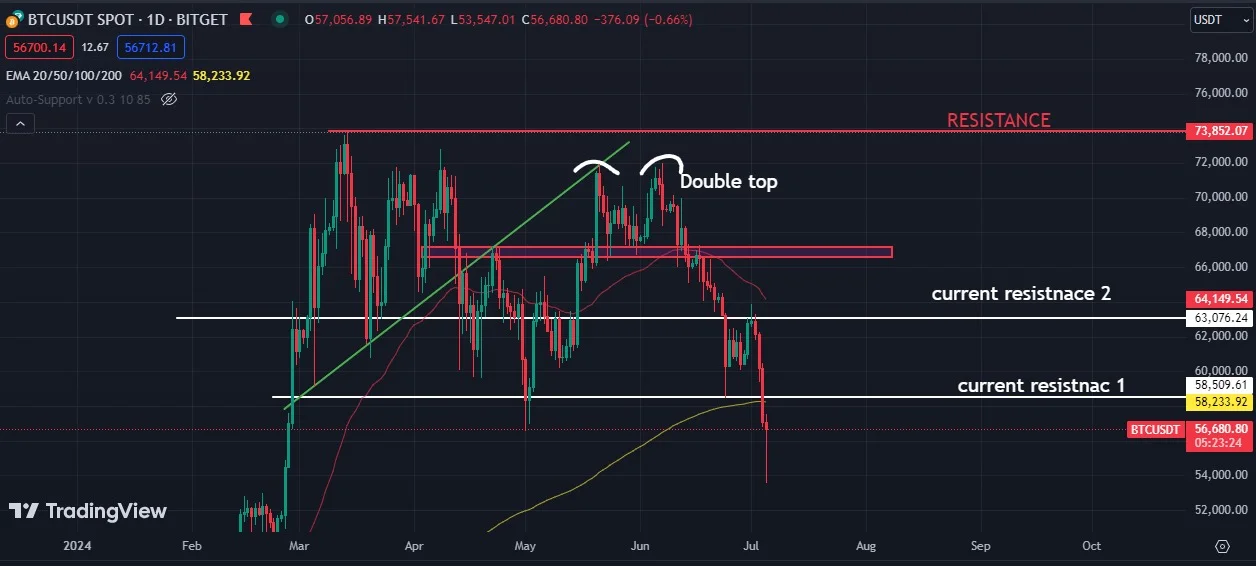Daily Bitcoin Chart Analysis: Insights and Trends

The Rise of Bitcoin (BTC): A Revolutionary Digital Currency
Bitcoin, often abbreviated as BTC, has become a household name since its inception in 2009. Created by the mysterious and pseudonymous figure Satoshi Nakamoto, Bitcoin has paved the way for the digital currency revolution. In this blog, we'll explore the origins of Bitcoin, its impact on the financial world, and its future prospects.

What is Bitcoin?
Bitcoin is a decentralized digital currency that operates on a peer-to-peer network without the need for a central authority or intermediary. Transactions are verified by network nodes through cryptography and recorded on a public ledger called the blockchain. This ensures transparency, security, and immutability of all transactions.
The Birth of Bitcoin
The concept of Bitcoin was introduced in a whitepaper titled "Bitcoin: A Peer-to-Peer Electronic Cash System" published by Satoshi Nakamoto in 2008. Nakamoto mined the first block of the Bitcoin blockchain, known as the Genesis Block, on January 3, 2009. This marked the beginning of the Bitcoin network and the first step towards a decentralized financial system.
How Does Bitcoin Work?
Bitcoin transactions involve sending BTC from one wallet to another. Each wallet has a unique address, and transactions are secured by cryptographic keys. When a user initiates a transaction, it is broadcasted to the network, where miners compete to validate and add the transaction to the blockchain. This process, known as mining, involves solving complex mathematical problems and is rewarded with newly created BTC.
The Impact of Bitcoin
Financial Inclusion: Bitcoin provides access to financial services for the unbanked and underbanked populations worldwide. With just a smartphone and internet connection, individuals can send, receive, and store value.
Decentralization: Unlike traditional currencies, Bitcoin is not controlled by any government or central bank. This decentralization reduces the risk of currency manipulation and inflation.
Investment Opportunities: Bitcoin has emerged as a popular investment asset, often referred to as "digital gold." Its limited supply of 21 million coins makes it a hedge against inflation and a store of value.
Technological Innovation: The underlying technology of Bitcoin, blockchain, has inspired a wave of innovation in various sectors, including finance, supply chain, healthcare, and more.




